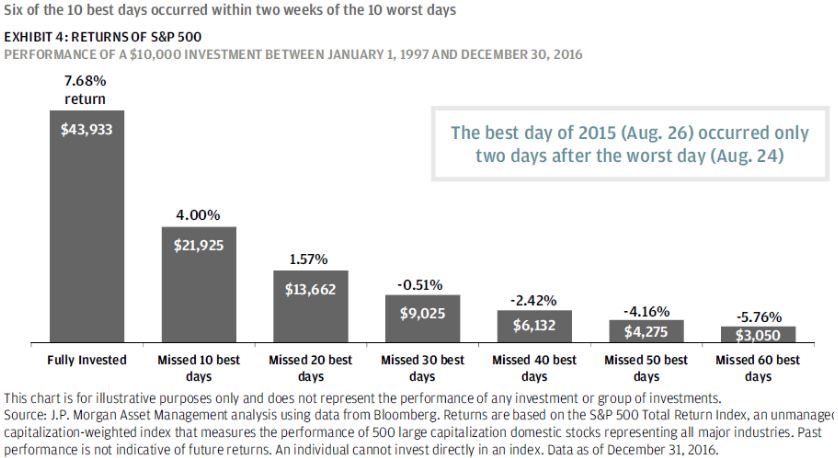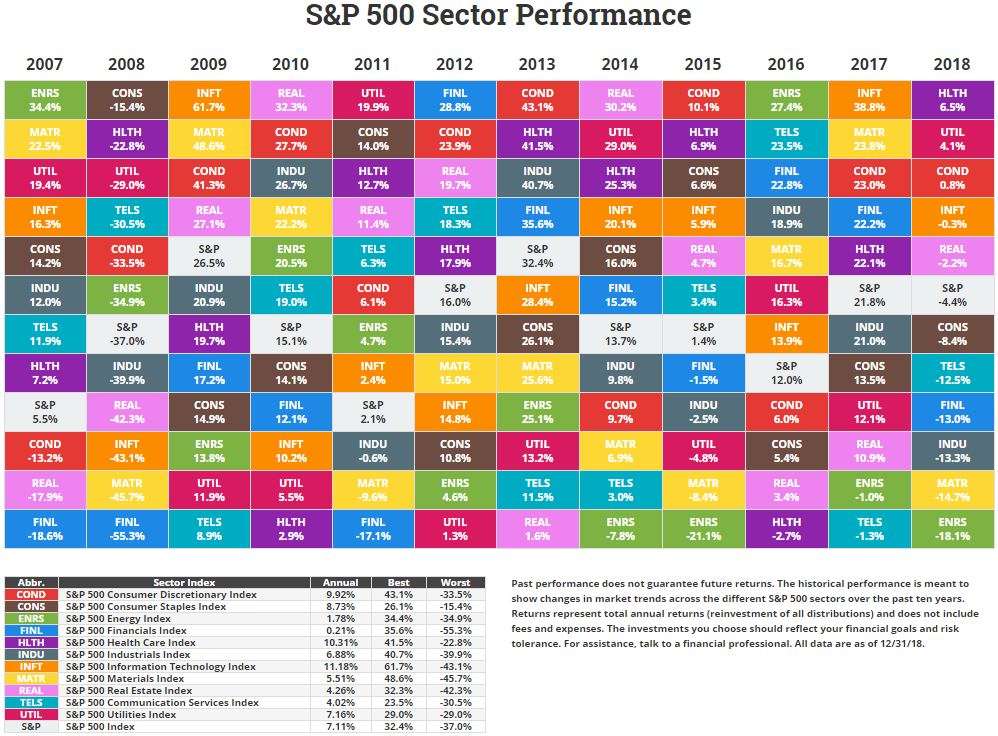A few weeks ago I wrote a blog post called Whitewashing a White Lie where I highlighted the dangerous influence the media and others can have on us in these volatile market conditions. The advice was to guard yourself against these potentially misleading influences because when we walk into a situation uninformed we can often become highly impressionable. I cannot emphasize this point enough – we need to gird ourselves from bad decisions and bad advice. Big market drops make folks uneasy and they go looking for answers on what to do when perhaps the optimal thing to do is nothing at all.
Our Chief Investment Officer and Founder, David Bahnsen, is a weekly guest on Fox Business where he offers his market insights and advice. Let’s take a look at his appearance last week, as I believe it provides a good example for TOM this week.
This type of debate and banter can be enjoyable to watch, but sometimes it’s easy to miss the wisdom and folly that lies within these conversations. Let’s take a look at two truths we can glean from this segment.
-
Market Timing is a Fool’s Errand
[0:10] “People cannot be trying to trade in and out of this thing, because if you miss a day like yesterday you potentially miss like a third of the recovery, right? I mean it is just too important that people sit still, not overreact, and not try to trade out and come back later…” – David
The above quote from David was off the cuff, but it represents a ton of wisdom that it is worth unpacking. Market timing is downright impossible. If there was even a possibility of trying to time the top’s and bottom’s of the market, you have to be perfect everytime to be successful.
Here’s the thing, I understand why many people try to do it. Most aren’t trying to shift in and out of the market seeking bigger returns, many are just spooked and want to sit out a while until the storm calms. Markets were very tranquil in 2017, not so much in 2018. This can be unsettling and can make you feel like you need to take action. We touched on this before (Staring Down a Lion October 31, 2018) – The smartest thing to do when you see a lion, is to stand your ground. It’s not intuitive, it seems like you’re doing nothing, but it’s the best advice for survival. Sometimes markets deserve the same reaction and you must stand your ground in the eyes of volatility.
Sadly, for many, a good word of advice still isn’t enough. The popular “robo-advisor” Betterment was having trouble protecting its investors from making bad decisions through tough markets. These are self-directed accounts that do not have a real-life advisor available to help protect the investor from letting fear lead them to a bad investment decision. To help combat this reactive, fear-based behavior, Betterment implemented a warning box that would pop-up when an investor would try to implement a sudden allocation change in their portfolio during volatile times. Was this warning box a reminder to think twice before hitting confirm? Nope. Instead, this popup was a calculation of the potential tax cost to making the change. Guess what? It worked! I guess people hate paying taxes more than they fear volatile markets. So, in that same vein, here’s a chart that I want you to brand into your memory, let this be your warning box before making a bad decision about market timing:

Source: JP Morgan
It really is surprising what just missing a few of the best days in the market will do to your long term returns. Staying invested matters, it matters a lot.
-
Rearview Mirror Investing
[1:01] “I don’t totally agree with David… There are things you can do… We’ve been talking about this for the last few days and weeks… There are things like fixed income that are working, there are things like utilities that are working, gold is working! So, to mitigate the volatility, I guess you don’t necessarily have to trade in and out, but you can take off some of those positions that maybe are seeing bounces on days like yesterday and get into stuff that is actually working like gold as I mentioned.” – Scott
Here is a funny question, but could you ever imagine trying to drive somewhere only looking at the rearview mirror? Crazy, right? We need to look ahead, to understand the landscape – the other cars, road signs, pedestrians, etc. are all extremely important to be aware of. Please, please, please, for the safety of all of us, never implement this driving experiment. And for your financial safety don’t succumb to this kind of investing “experiment” for it is equally dangerous as driving while only looking behind you. As you can see from the quote above, the other guest, Scott disagrees with David and believes there is some action to be taken – sell and invest in “what is working.” If I am an investor, this definitely makes my ears perk up. Remember, I am a bit startled, markets have spooked me, and I am ready to push a button, pull a lever, sell this, buy that, I just want to do something that I believe is action oriented.
So, what’s wrong with this advice? Buy “what is working” sounds like a great idea, but what does it really mean? It means that you will go around buying what “worked” yesterday, hoping it will “work” tomorrow. I leave the word work in italics intentionally because I am not really sure what Scott means by it. I assume he is inferring that working means something is appreciating in price, but that’s not true. When we invest, we should be fully aware that working means that investments will go up, down, and sideways – that’s what they do. Let us not forget the ever-popular disclaimer branded on all financial instruments, “past performance is not indicative of future results.” Listen, this is not intended to be a Scott bashing, this is just a soundbite, and I am sure if he was here to defend himself he would expand on what he meant, but I am less worried about what he meant and more worried about what the audience heard.
By the way, there are investments that only go up and never down, they’re called Ponzi schemes, of which the most infamous of such, the Bernie Madoff scandal, is still being unwound today a decade later. Take my advice, never invest in Ponzi schemes 🙂
To further this point, here is a table of the last 12 years of performance for the different sectors of the S&P 500:

Source: www.novelinvestor.com
Keep in mind, that Scott was talking about making changes day by day and week by week, which is even more difficult than predicting year by year. The point of this table is to illustrate the lack of patterns and future insight that the year-by-year performance provides. There is no rhyme or rhythm to these returns and in isolation, they provide us no guidance for the future. Just as we discussed, “past performance is not indicative of future results.”
Charles’ Conclusion, TOM’s Conclusion
[3:40] “The idea though that you would sell – you know for the average investor out there, not a professional trader – to kind of sell a core holding and then to buy gold and then somehow get out of it in the right time and get back in those core holdings, I think that’s the quandary people are in… people are grappling with what to do and making a lot of panicky moves here.” – Charles Payne
This isn’t always the case, but in this segment, our moderator [Charles Payne] does a good job at calling out this bad advice.
There will always be a tension though, these shows are built around the here-and-now-exciting-do-something-immediately type of headlines, the types that get viewers, but these viewers have real goals, real aspirations, real money, and making the right decisions are “real” important. Here are our takeaways:
- Doing nothing is doing something – sometimes you must stand your ground
- Trying to chase yesterday’s winners is not a sound investment strategy
I hope you take these two truths to heart and embrace them the next time you come across some shaky markets. As I mentioned earlier, “being informed” is one tool to help us avoid being led astray, but I also know that we will never be fully informed. Try your best not to be drawn in by a savvy orator or a dreamy idea, but rather ask yourself if the advice is logical and sensible. When I watch this clip, my fearful-self doesn’t love David’s advice, but I know it’s the right advice. I am excited and intrigued by Scott’s advice, but I know it’s the wrong advice. At the end of the day, we all have some level of intuition and we need to know that if it sounds too good to be true, then it is probably… too good to be true.







